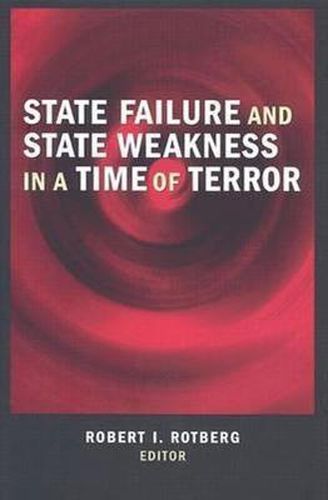Readings Newsletter
Become a Readings Member to make your shopping experience even easier.
Sign in or sign up for free!
You’re not far away from qualifying for FREE standard shipping within Australia
You’ve qualified for FREE standard shipping within Australia
The cart is loading…






Since September 11th 2001, the threat of terror has given the failed state problem an immediacy and an importance that transcends its previous humanitarian dimensions. In the past, failure had fewer implications for peace and security. Now failed states pose dangers to themselves, to their neighbours and to people around the globe. Preventing nation states from failing, and reviving those that do fail, has become a strategic, as well as moral, imperative. The introduction to this text develops a theory of state failure and suggests how it may be guarded against. The subsequent chapters illustrate the state failure paradigm by examining cases of state collapse (Somalia), state failure (Democratic Republic of the Congo, Sierra Leone and the Sudan) and states at risk for failure (Colombia, Fiji, Haiti, Indonesia, Lebanon, Sri Lanka and Tajikistan). The last chapters ask when and how weak states succumb to failure, and how that fatal slide can be arrested.
$9.00 standard shipping within Australia
FREE standard shipping within Australia for orders over $100.00
Express & International shipping calculated at checkout
Since September 11th 2001, the threat of terror has given the failed state problem an immediacy and an importance that transcends its previous humanitarian dimensions. In the past, failure had fewer implications for peace and security. Now failed states pose dangers to themselves, to their neighbours and to people around the globe. Preventing nation states from failing, and reviving those that do fail, has become a strategic, as well as moral, imperative. The introduction to this text develops a theory of state failure and suggests how it may be guarded against. The subsequent chapters illustrate the state failure paradigm by examining cases of state collapse (Somalia), state failure (Democratic Republic of the Congo, Sierra Leone and the Sudan) and states at risk for failure (Colombia, Fiji, Haiti, Indonesia, Lebanon, Sri Lanka and Tajikistan). The last chapters ask when and how weak states succumb to failure, and how that fatal slide can be arrested.